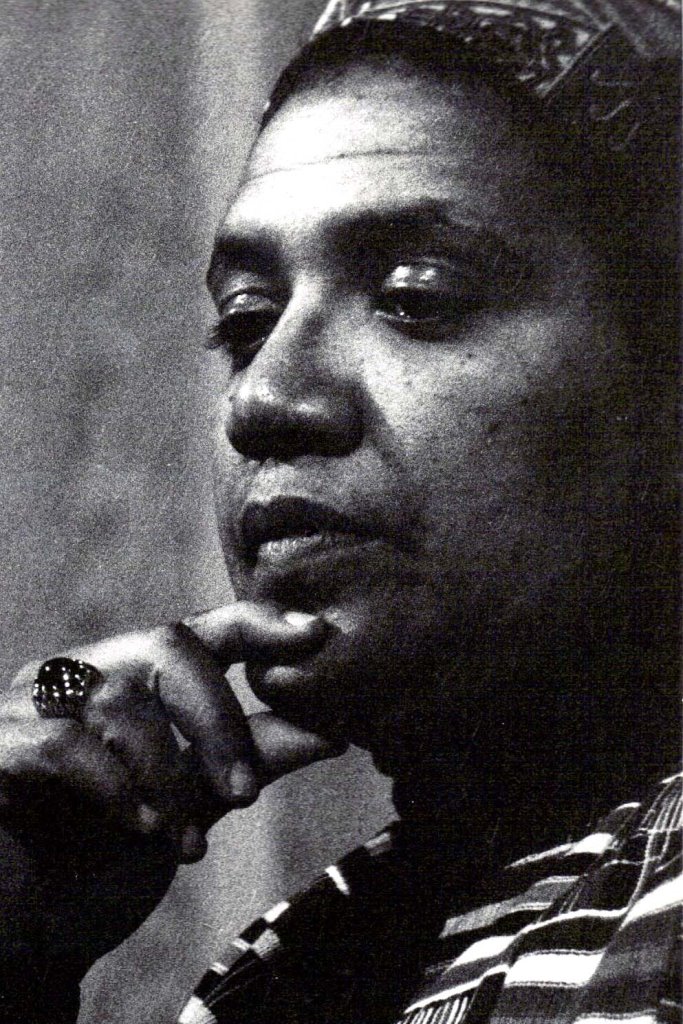
Audre Lorde was a black writer, feminist, womanist, librarian, teacher, and civil rights activist, who described herself as a “lesbian, mother, warrior, poet.” Her poems and prose largely dealt with issues related to civil rights, feminism, and the exploration of black female identity. Jerome Brooks says in Black Women Writers (1950-1980): A Critical Evaluation, “Lorde’s poetry of anger is perhaps her best-known work.”
Lorde was born in New York City on February 18, 1934. Her parents were Caribbean immigrants who settled in Harlem. Lorde learned to read and write at a young age, and wrote her first poem when she was in the 8th grade. She went on to attend a high school for gifted students. It was during college that she came to identify herself as a lesbian and a poet.
She went on to earn a master’s degree in Library Science at Columbia University. She served as a librarian in New York public schools from 1961 through 1968, when her first volume of poetry, First Cities, was published. In 1962, Lorde married Edward Rollins, with whom she had two children and later divorced. She spent time as writer-in-residence at Tougaloo College in Mississippi. Her second volume of poetry, Cables to Rage, came out of her time and experiences there.
Lorde went on to become a visiting professor in Berlin, Germany at the Free University of Berlin. While in Germany, she was influential in the start of the Afro-German movement. “Instead of fighting systemic issues through violence, Lorde thought that language was a powerful form of resistance and encouraged the women of Germany to speak up instead of fight back.” (Piesche, Peggy (2015). “Inscribing the Past, Anticipating the Future”). A documentary was made about her time in Berlin, “Audre Lorde: The Berlin Years 1984-1992.”
Audre Lorde battled cancer for the final fourteen years of her life. She wrote The Cancer Journals, which won the American Library Association Gay Caucus Book of the Year Award in 1981. Lorde once said, “I have a duty to speak the truth as I see it and to share not just my triumphs, not just the things that felt good, but the pain, the intense, often unmitigating pain.”
In 1980, she co-founded Kitchen Table: Women of Color Press, the first U.S. publisher for women of color. She was also a founding member of Sisters in Support of Sisters in South Africa, an organization that worked to raise concerns about women under apartheid. From 1991 until her death in 1992, she was the New York State Poet Laureate. In 1992, she received the Bill Whitehead Award for Lifetime Achievement from Publishing Triangle. In an African naming ceremony before her death, she took the name Gamba Adisa, which means “Warrior: She Who Makes Her Meaning Known.”